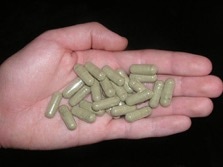
However, the freedom around nutritional supplements in the United States means consumers must be wary of shoddy, fraudulent, and even unsafe supplements with misleading claims. It’s important to learn how to be a smart supplement shopper to make the most of our supplement-shopping freedom.
You may be surprised to learn the worst supplements aren’t from some shadowy corner of the internet, but rather usually from your local drug or grocery store.
At the same time, it’s also important to protect consumer access to supplements. The FDA’s approach to the industry is often viewed as unnecessarily aggressive due, it is widely believed, to the influence of the pharmaceutical industry. As the rates of “untreatable” or “mysterious” chronic diseases and dementia continue to skyrocket, people increasingly turn to alternative health care and nutritional supplements to address their health concerns. This has turned the supplement industry into one worth many billions of dollars.
What supplements to avoid
The supplement industry as created its own standards of quality that manufacturers can choose to comply with in order to reassure their buyers only the purest ingredients are used.
Avoid cheap, mass marketed supplements comprised of synthetic or inflammatory fillers (such as wheat and corn), poor quality ingredients, inactive ingredients, and artificial colors. There is also no way of knowing how shipping and storing has affected the ingredients.
What to look for in quality supplements
For starters, avoid fillers that use wheat, corn, starches, and magnesium stearate. Also, research the origin of the ingredients. Herbal ingredients can come from heavily polluted areas in other countries and be loaded with toxins. Good companies test their ingredients for toxins.
Research the brand. Are they formulated with a health-care professional and scientific advisory board? Are there peer-reviewed studies to back up the ingredients? Does the company test purity?
What is their marketing like? Do they use sleazy snake-oil selling tactics? Or do they cater to licensed practitioners and provide educational seminars to teach about the products and how best to incorporate them into a health care plan?
Also, look for supplement companies that send their products out to independent labs to test for quality and purity.
NSF International, and independent organization, certifies supplements on three levels of quality:
- Certified Good manufacturing practices (CGMPs): Guidelines that assure a product conforms with what’s listed its label.
- American National Standard for dietary supplement products: Testing that ensures products contain what is on the label and not undeclared contaminants.
- NSF Certified for Sport: Screens for athletic banned substances.
What I always say, is to choose a supplement company that polices itself, or better yet choose supplements that I have already policed. I choose supplements from reputable companies. My recommendations support my ability to be a good doctor and to help your body heal itself.

 RSS Feed
RSS Feed